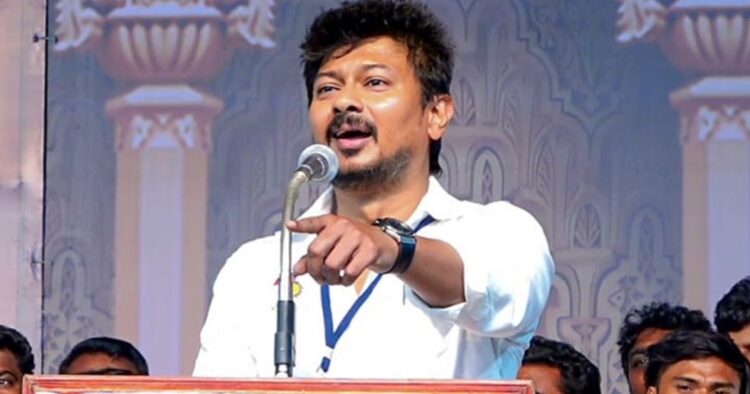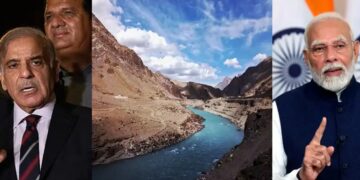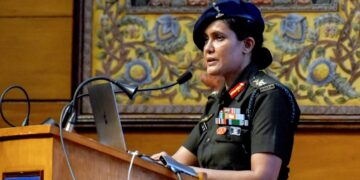- Udhayanidhi Stalin called for eradicating the Sanatana Dharma despite the backlash.
- His remarks helped him secure power within DMK.
- He now opposes the Waqf Bill to maintain his vote bank.
Tamil Nadu Deputy Chief Minister Udhayanidhi Stalin has once again shown his open bias against Sanatana Dharma while attending an Iftar party organized by the DMK minorities’ rights wing. His latest statement at the event, where he claimed that the DMK is working for Muslims and criticized the central government over the Waqf Amendment Bill, is another instance of his targeted appeasement politics.
This is not the first time Udhayanidhi Stalin has displayed his animosity towards Sanatana Dharma. In September 2023, he created a massive controversy when he compared Sanatana Dharma to “dengue” and “malaria” and called for its eradication. His words were not just a passing comment but a direct attack on the faith and traditions followed by millions of Hindus.
Despite strong backlash from the BJP, AIADMK, and various Hindu groups, Udhayanidhi refused to apologize. Instead, he doubled down on his statement, saying he would “oppose Sanatana forever.” His remarks were widely criticized as an attempt to divide society and target one particular religion for political gains.
Following his controversial statement, many speculated that it could hinder his political growth. However, instead of facing consequences, Udhayanidhi used the controversy to strengthen his hold within the DMK. His remarks helped him consolidate his influence in the party, outshining others in the race for succession.
By making such remarks, he proved his loyalty to the Dravidian ideology and secured his position as the “number two” in the party. His promotion to Deputy Chief Minister was an expected result of this strategy.
Now, at the Iftar gathering, Udhayanidhi Stalin proudly stated that the DMK has always worked for Muslims. He boasted about his party’s long-standing relationship with the community and criticized the Union government over the Waqf Amendment Bill, calling it a “new problem.”
His words raise an important question: Why does he speak so strongly in support of minorities but attack Sanatana Dharma? His selective outrage is evident. He claims that minorities are being harassed, but he himself openly disrespects Hindu traditions and beliefs.
Udhayanidhi’s statements are not random; they align with the DMK’s long history of anti-Hindu rhetoric. The party, under the influence of Periyar’s ideology, has repeatedly targeted Hindu customs, temples, and traditions while carefully positioning itself as the protector of minorities.
His father, MK Stalin, has indirectly supported this narrative. Even when Udhayanidhi’s comments on Sanatana Dharma caused a major uproar, MK Stalin did not distance himself from them. Instead, he used it as an opportunity to strengthen Udhayanidhi’s role in the party.
Udhayanidhi and the DMK claim that their attacks on Sanatana Dharma are part of a fight for “social justice.” However, this argument falls apart when one sees their blatant appeasement of certain communities while targeting Hindu beliefs. If social justice was truly their goal, why do they remain silent on issues affecting Hindus? Why do they not speak against forced conversions, temple demolitions, or attacks on Hindu traditions?
It is evident that Udhayanidhi Stalin used the Sanatana Dharma controversy to rise politically within the DMK. By positioning himself as a hardliner against Sanatana Dharma, he secured his place in the party’s hierarchy. His father strategically placed him in a position of power while pushing his stepsister Kanimozhi into national politics. This internal family politics clearly shows that his statements were not accidental but a calculated move to strengthen his hold over the DMK’s core voter base.
Udhayanidhi Stalin’s continuous targeting of Sanatana Dharma sets a dangerous precedent. His political success, built on anti-Hindu rhetoric, exposes the hypocrisy of the so-called “secular” politics practiced by the DMK. While the party claims to stand for equality, its actions prove otherwise.
By openly aligning with one community while attacking another, Udhayanidhi is playing a divisive and dangerous game. His statements are not about social justice but about consolidating power through religious polarization. The people of Tamil Nadu must see through this hypocrisy and question leaders who attack their faith for personal and political gain.
The real question now is: Will the people of Tamil Nadu continue to support a leader who openly opposes their traditions and faith?

















Comments